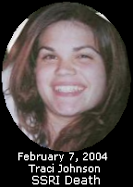Doctors Without Borders are also concerned in helping psychological problems in the countries they are working. It will take time and they are working with psychologists who volunteer to help.
""What do you do if there is enough food, but no one wants to eat?" asks Kaz de Jong, MSF's mental health advisor. "Sometimes people are unable to eat because they no longer want to live. They may have witnessed the killing of their family."
From 1993 to 1997, MSF implemented a comprehensive program to address the emotional trauma of thousands of people, including children, affected by the Bosnian war.
The Bosnia program was a departure, in both size and scope, from earlier mental health interventions MSF had undertaken in the Gaza Strip, Uganda, and India. Under de Jong's coordination, MSF established 10 counseling centers in Sarajevo and trained 70 local counselors to help bridge the cultural divide between MSF volunteers and the Bosnians they aimed to assist.Training local counselors, which is at the heart of MSF's mental health approach, was also crucial to building up the community's capacity to deal with the ongoing conflict. Through a mix of individual and group counseling the program aimed to help Bosnians restore the bonds among family, friends, community, and society.
MSF used radio programs to teach Bosnians about emotional reactions to traumatic events. "The stigma of weakness, the acknowledgment of suffering, and the shame that so often surrounds traumatized people became a collective experience," says de Jong. The program reached more than 10,000 people. (continue reading here)
Mental Scars from the Tsunami
"I first arrived in Aceh around three months ago in mid March. My role was to define a more long-term strategy now that we were out of the emergency phase. I was to look at the different locations where we were working and develop programs specific to the different contexts. I was also here to support the national and international team and build local capacity. In Aceh there are no clinical psychologists at all and even across Indonesia there are very few. I came here to help develop the ability of communities to meet the overwhelming mental health needs in the face of limited resources." (continue reading here)









No comments:
Post a Comment